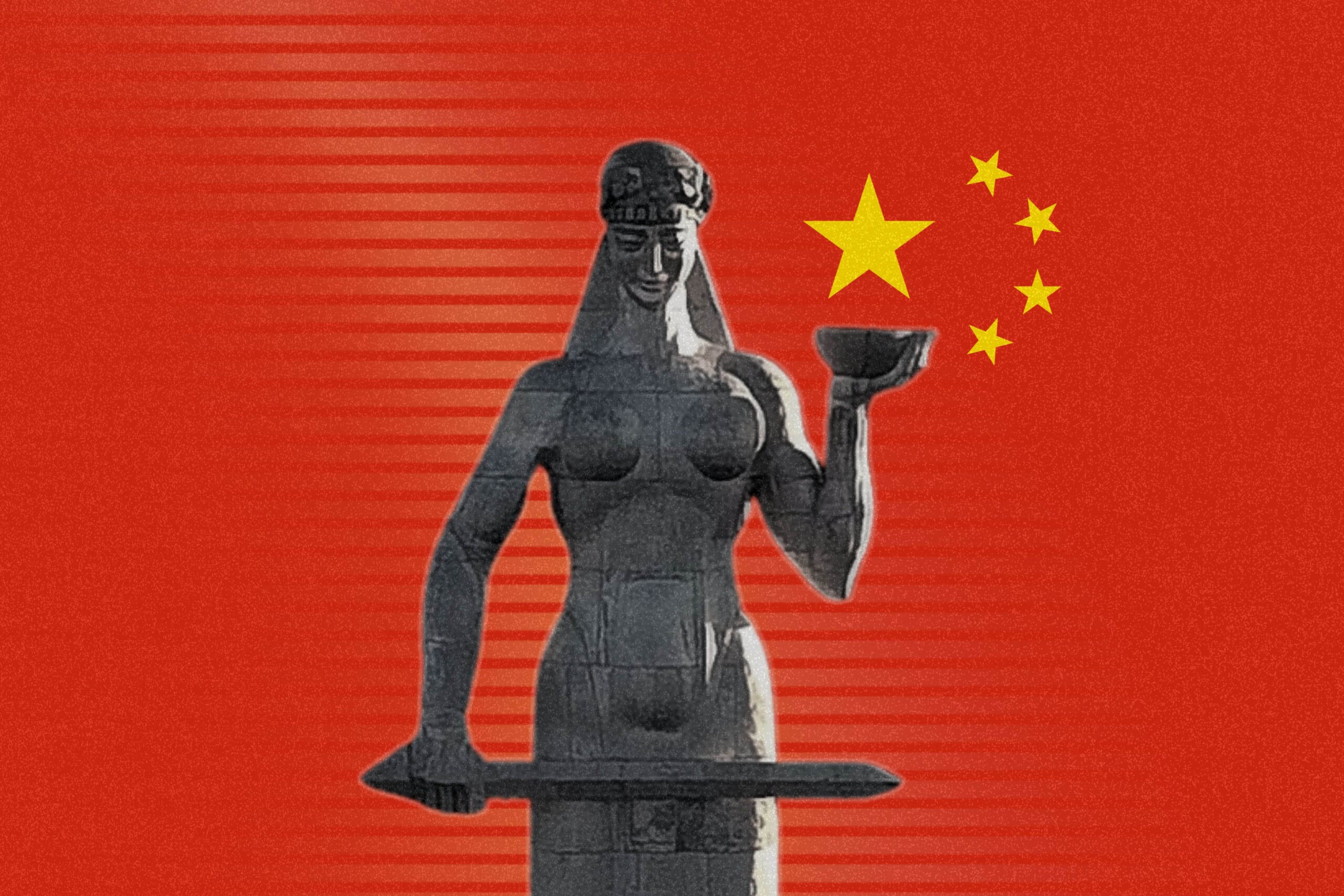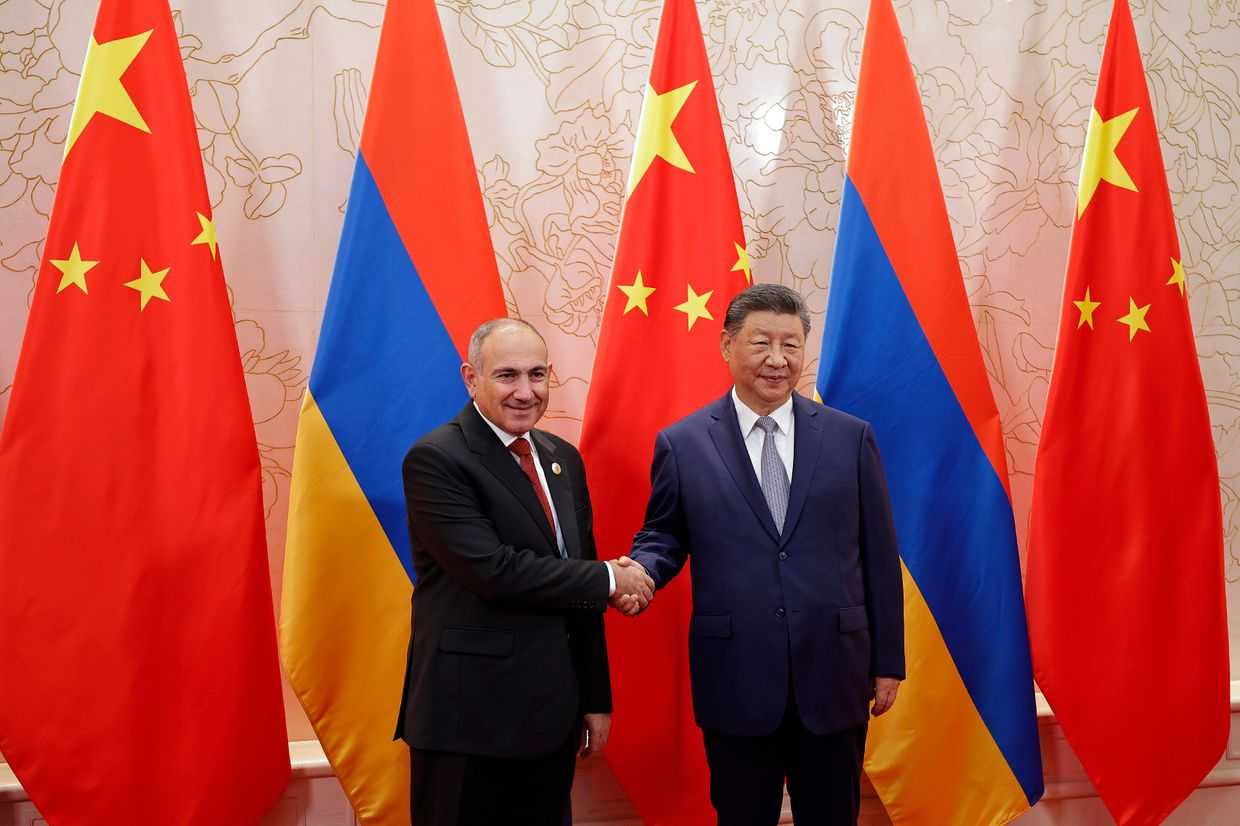
The Georgian Government has increasingly moved to strengthen relations with China, hailing the economic potential of the partnership including high-profile infrastructure projects. But despite the optimism, the relationship has so far remained almost entirely one-sided, and in fact, opens the country up to substantial new risks.
Georgia’s foreign strategic alignment has been profoundly influenced by its geopolitical location, historical context, and aspirations for closer integration with Western institutions such as NATO and the European Union. However, in recent years, China has emerged as a significant player in Georgia’s foreign policy landscape. The two nations have actively sought to strengthen their political relations through a series of high-level visits and agreements, with Chinese initiatives in Georgia progressing at a remarkable pace, marked by significant expansions occurring almost monthly.
A pivotal moment in Sino-Georgian relations was the issuance of the Strategic Cooperation Statement on 31 July 2023, which heralded a new era of bilateral collaboration. The visit of then–Georgian Prime Minister Irakli Gharibashvili to China in 2023 culminated in this strategic partnership statement aimed at bolstering policy coordination and collaboration on regional and international affairs.
This partnership has been perceived as a strategic manoeuvre by China to expand its influence in the South Caucasus, a region traditionally regarded by Moscow as within its sphere of influence. The China-Georgia partnership can thus be viewed as part of a larger geopolitical shift in the region.
The ongoing conflict in Ukraine and the resulting geopolitical realignments have heightened the strategic importance of the South Caucasus. China’s involvement in Georgia could potentially reshape regional dynamics, particularly as it seeks to develop alternative trade routes that bypass Russia, exemplified by projects such as the Middle Corridor, which links China to Europe via Central Asia and the Caucasus.
But despite the deepening Sino-Georgian relationship since 2016, there is no significant economic activity that might be relied upon to reshape the existing dynamics. The progress and developments thus far have been largely one-sided, and the prospects for Georgia’s flagship project for the Middle Corridor, the Anaklia Deep-Sea Port, are not very promising.
And despite few gains, there are several concerns: from foreign policy to economic collaboration, with the cooperation appearing to be overwhelmingly China-centred in various ways.
The illusion of Chinese investment
Genuine success in economic relations can be gauged by a surge in direct investments and heightened interest from companies entering the country, resulting in job creation and increased incomes fueled by external capital.
Official statistics offer the most precise and dependable depiction of this reality; and publicly available data on foreign direct investment (FDI) unequivocally highlights the government’s failure to attract substantial Chinese investment, despite lofty proclamations of significant interest and ‘immeasurably deepened’ relations.
The actual economic impact of Chinese investment in Georgia remains minimal. This shortfall is starkly evident not only when compared to the investment influx from the US, and EU, but also in relation to most individual EU member states, including smaller nations such as Malta, the Czech Republic, and Luxembourg.
The comparison with other countries further illuminates the shortfalls. These figures underscore the discrepancy between the government’s ambitious rhetoric and the tangible outcomes of its strategic economic engagements with China. The figures clearly undermine the government’s claims of success and call into question the sustainability and reliability of relying on China as a cornerstone of Georgia’s foreign economic policy.
This situation is compounded by the Georgian Government’s tendency to overlook critical factors such as transparency, due diligence, and project management when engaging with Chinese investors.
A key example is the infrastructure developments such as roads, bridges, and tunnels being built by Chinese companies in Georgia. Such projects are substantially funded by Georgian taxpayers and allocated in the state budget. Chinese companies execute projects at the behest of the Georgian government, being funded and directed by it. Consequently, their involvement does not correlate with ‘growing’ economic cooperation or the ‘enhanced economic appeal’ of the country.
Moreover, the government’s increased engagement in trade and infrastructure projects with Chinese firms has been marred by a pronounced lack of transparency and due diligence. This mismanagement has frequently resulted in allegations against Chinese companies for failing to complete projects on schedule and within budget, raising questions about the efficacy and reliability of such collaboration.
The failure to attract and properly manage Chinese investments not only diminishes potential economic gains but also risks fostering an environment of dependency and economic coercion. In essence, without a substantial and well-managed influx of Chinese investment, the strategic partnership remains more of a political statement than an economic reality.
Georgia’s Euro-Atlantic aspirations at risk
The Georgian Government’s unconditional partnership with China poses significant economic and political risks.
One of the foremost concerns is the potential for economic dependence on China, which could be leveraged into political influence. In a partnership that lacks reciprocity and disproportionately serves China’s interests, there is a substantial risk of economic coercion. Under such circumstances, Georgia might be compelled to align its policies with China’s strategic objectives, both domestically and on the international stage.
This threatens to undermine the country’s Euro-Atlantic integration, potentially derailing Georgia’s ambitions to join NATO and the EU.
The partnership could compel Georgia to support China in international forums, even at the expense of its own national interests and those of its Western allies. This issue is particularly dramatic considering that the ruling Georgian Dream party committed itself to such a priority under the Strategic Statement with China in July 2023.
And as with its economic relations, Georgia’s political partnership with China has also been entirely one-sided.
China — as a supposed ‘strategic partner’ — has never voted in favour of Georgian resolutions at the UN calling for the unconditional return of Internally Displaced Persons (IDPs) from the occupied territories of Georgia. Moreover, there have been no efforts to raise issues regarding Georgia’s territorial integrity or the withdrawal of Russian armed forces from Georgian territory.
A collaboration of convenience
While Georgia’s collaboration with China does not appear to be in the interest of the country, it does align with the broader strategic objectives of both China and the current Georgian Government.
From the perspective of the People’s Republic of China, the aim is to strategically realign Georgia away from its traditional Western alliances and integrate it more closely into China’s expansive global initiatives, such as the Belt and Road Initiative (BRI) and the Global Security Initiative (GSI). This integration seeks to bolster China’s geopolitical influence in the region, creating alternative pathways for trade and diplomacy that circumvent traditional Western channels.
For the Georgian Government, this partnership offers a pragmatic alternative to NATO and the European Union, providing access to critical financial resources for infrastructure development without the stringent democratic conditions typically imposed by Western institutions.
This alternative funding is particularly attractive for advancing major infrastructure projects that are essential for Georgia’s economic modernisation and connectivity — but which might otherwise be hampered by the conditionalities attached to Western aid and investment.
It is of utmost importance for Georgia to maintain a foreign policy that safeguards its sovereignty and democratic values, as well as its genuine economic interests — something that does not align with its deal with the Chinese Government.
For further details, you can read Civic IDEA’s full assessment on their website here.
The opinions expressed in this article are the author’s alone, and do not necessarily reflect the views of OC Media’s editorial board.








